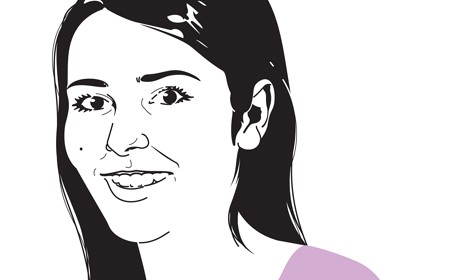The growing undercover effort to get God into biology class
Meet the new creationism-in-sheep's-clothing: The "academic freedom" bill

A free daily email with the biggest news stories of the day – and the best features from TheWeek.com
You are now subscribed
Your newsletter sign-up was successful
Imagine an American public school where science textbooks were obligated to debunk Charles Darwin; where students could deny global warming and still get an A, and where college professors could tell Biology 101 students that the world was born on the back of a giant turtle. Sounds a little backwards for 2013, right?
Frighteningly, these are all real scenarios that could occur under new education bills proposed this year. But the language in most of these bills is so obtuse that you might not even know if you live in one of the six states considering them (Montana, Colorado, Oklahoma, Arizona, Missouri, and Indiana).
America, meet the new creationism-in-sheep's-clothing: The "academic freedom" bill.
The Week
Escape your echo chamber. Get the facts behind the news, plus analysis from multiple perspectives.

Sign up for The Week's Free Newsletters
From our morning news briefing to a weekly Good News Newsletter, get the best of The Week delivered directly to your inbox.
From our morning news briefing to a weekly Good News Newsletter, get the best of The Week delivered directly to your inbox.
Unlike bills that explicitly require intelligent design and religious curriculums to be taught in schools, academic freedom bills simply permit teachers, schools, and students to explore alternative theories without repercussions. Sounds harmless, right? But Eric Meikle, education project director at the National Center for Science Education, explains that what these bills really do is "open the door for creationist literature." And in the last few years, the number of these bills has skyrocketed, with 51 proposed since 2004, and twice as many proposed this year than in all of 2012. (Remember, it's only February).
Needless to say, science teachers aren't thrilled. "Intelligent design and anti-global warming curriculums harm the general public's perceptions of science, which can decrease students' interest in pursuing science careers," says Kathy Trundle, president of the Association for Science Teacher Education. "In turn, U.S. advancements in science [are] negatively impacted." Rick Grosberg, an evolution and ecology professor at the University of California at Davis, points out that "the mere act of teaching intelligent design as if it were an alternative scientific explanation confuses students and the public about what science is."
The secret weapon in these bills is the idea that pupils should understand the "strengths and weaknesses" of different scientific theories. Which theories? Well, as a bill proposed by four Republican state senators in Arizona makes clear, that would be "biological evolution, the chemical origins of life, global warming and human cloning." Coincidentally, these are the exact same theories that House Bill 1674 in Oklahoma, proposed by GOP state Rep. Gus Blackwell, considers controversial. His legislation even prevents teachers from flunking students who write papers debunking their textbook material. Seriously.
Teachers and scientists say they're all for scientific questioning — when it's actually about science. "Teaching about the existence of genuine scientific controversy is educationally valuable, but it must be genuine controversy, with serious scientists lining up on both sides," says Richard Dawkins of the Richard Dawkins Foundation for Reason and Science. "Intelligent design is not a scientific theory." Cornwell also points out that there is no legislation like this in the U.K., and he says it's a "very sad outcome" for the United States.
A free daily email with the biggest news stories of the day – and the best features from TheWeek.com
For now, it's not clear how far these efforts will actually go — Montana's bill was recently tabled in the House Education Committee and the Colorado bill was fully rejected. However, it's not unheard of for these kinds of bills to pass: Last year Tennessee approved an academic freedom bill, and Louisiana has also passed one.
Rick Brattin, a Republican state representative in Missouri, went so far as to propose a bill late last month that actually requires Missouri public school teachers to devote equal time and space to the teaching of intelligent design, "destiny," and any other creation theory a teacher might want to rustle up. "I've had numerous college professors within biology, school science teachers...who say they are not allowed to teach any type of theory [like intelligent design].... They are banned from the science community," he tells The Riverfront Times.
The scientists I spoke to aren't buying it. "I think it makes more sense," Trundle says, "for scientists to drive the content of science curricula rather than politicians."
Dana Liebelson is a reporter for Mother Jones. A graduate of George Washington University, she has worked for a variety of advocacy organizations in the District, including the Project on Government Oversight, International Center for Journalists, Rethink Media, the Reporters Committee for Freedom of the Press, and Change.org. She speaks Mandarin and German and plays violin in the D.C.-based Indie rock band Bellflur.